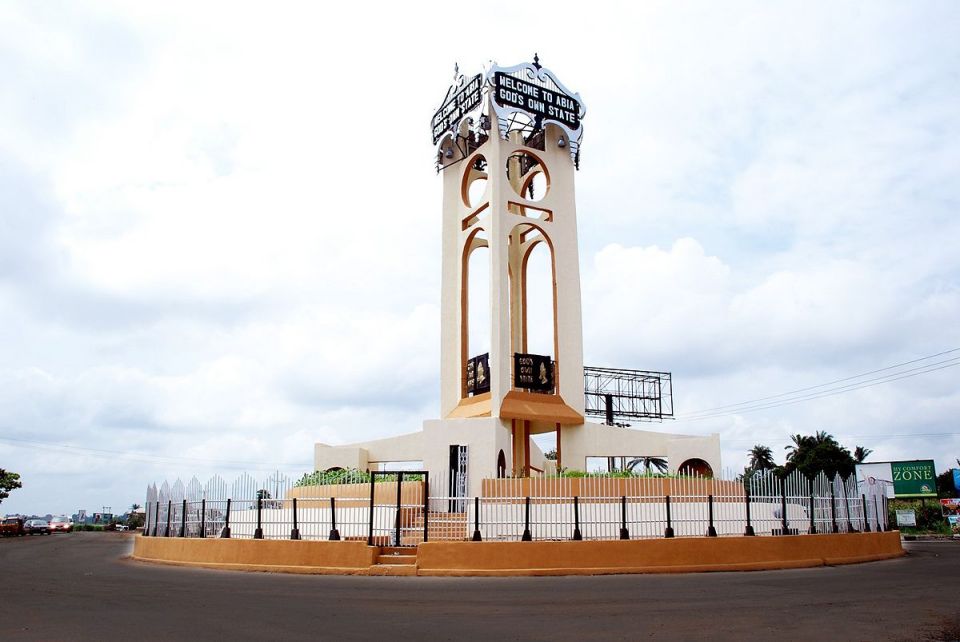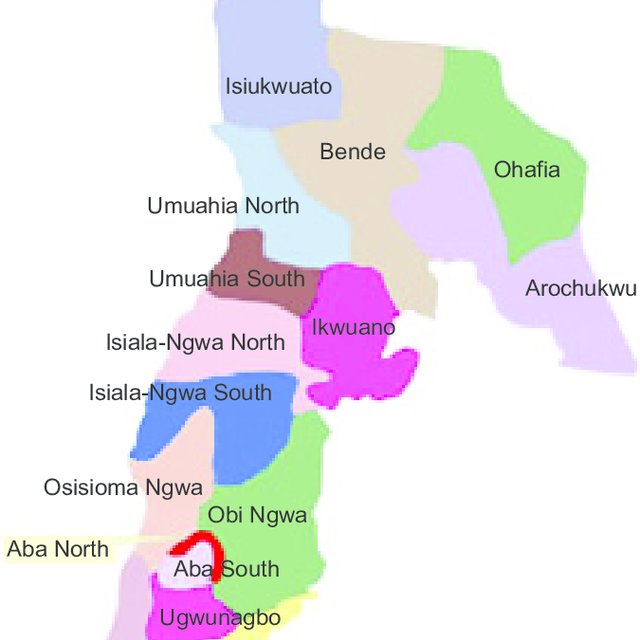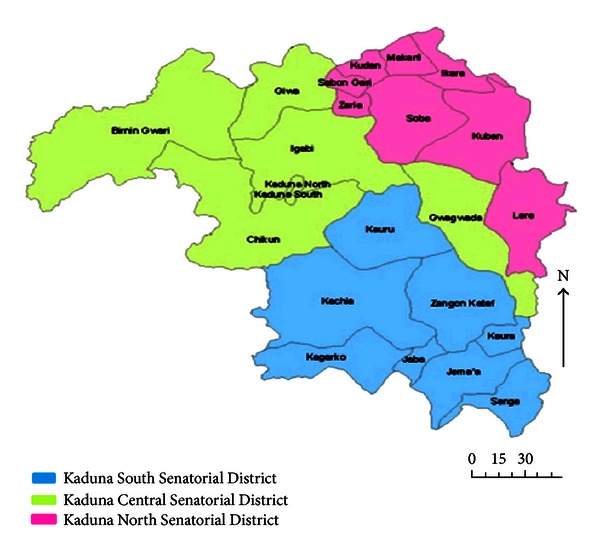Complete Guide To Local Governments In Abia State
A list of local governments in Abia State is a detailed inventory of the administrative divisions within the state, providing an overview of its political and geographical structure. Abia, a state in southeastern Nigeria, comprises 17 local government areas, each with its own unique characteristics and responsibilities.
Understanding the local government structure of Abia is crucial for comprehending the state's governance system, service provision, and socio-economic development. Historically, the creation of local governments in Nigeria emerged as a means to decentralize power and bring governance closer to the people.
In this article, we present a comprehensive list of local governments in Abia State, highlighting their names, headquarters, and key features. This information will serve as a valuable resource for researchers, policymakers, and individuals seeking a better understanding of Abia State's administrative and political landscape.
- Lara Trump Before And After
- Chef Tafari Campbell Cause Of Death And
- Hotel Pension Steiner Windhoek Namibia
List Of Local Governments In Abia State
Local governments play a vital role in the administration and development of Abia State. Their functions encompass a wide range of responsibilities, impacting various aspects of the state's governance, service delivery, and socio-economic growth.
- Administrative Divisions
- Political Structure
- Service Provision
- Socio-Economic Development
- Grassroots Governance
- Revenue Collection
- Community Mobilization
- Local Infrastructure
These key aspects are interconnected and form the foundation of local government operations in Abia State. Through their functions and responsibilities, local governments provide essential services to communities, facilitate grassroots participation in governance, and contribute to the overall progress and well-being of the state.
Administrative Divisions
Administrative divisions are the fundamental units of local government organization and structure. They provide a framework for delivering essential services, implementing policies, and facilitating grassroots participation in governance. In the context of Abia State, the list of local governments is directly connected to the state's administrative divisions.
The establishment of local governments in Abia State is based on the division of the state into smaller administrative units, each with its own governing body and responsibilities. These local government areas serve as the primary points of contact between the state government and the local communities, ensuring effective service delivery and addressing local needs.
Real-life examples of administrative divisions within Abia State include Umuahia North, Umuahia South, Aba North, and Aba South. These local government areas are responsible for providing essential services such as healthcare, education, sanitation, and infrastructure development within their respective jurisdictions.
Understanding the connection between administrative divisions and the list of local governments in Abia State is crucial for comprehending the state's governance structure, service provision, and socio-economic development. It enables stakeholders to identify the specific roles and responsibilities of each local government area, facilitates effective coordination and collaboration, and enhances overall administrative efficiency.
Political Structure
Political structure refers to the system of government and the distribution of power within a society. It encompasses the institutions, processes, and relationships that determine how decisions are made and how power is exercised. In the context of Abia State, the list of local governments is closely intertwined with the state's political structure.
The establishment of local governments in Abia State is a direct reflection of the state's political structure. The state is governed by a democratic system, with power distributed across different levels of government, including the state government, local governments, and traditional institutions. Local governments serve as the primary political units at the grassroots level, providing a platform for local participation in governance and decision-making.
Real-life examples of the political structure within Abia State include the election of local government chairmen and councilors, the establishment of local government legislative councils, and the involvement of traditional rulers in local governance. These elements contribute to a decentralized political system that empowers local communities to address their unique needs and priorities.
Understanding the connection between political structure and the list of local governments in Abia State is crucial for comprehending the state's governance dynamics. It enables stakeholders to identify the political processes and institutions that shape local governance, facilitates effective collaboration between different levels of government, and enhances the overall accountability and responsiveness of the political system.
Service Provision
Service provision is a critical component of local governance, as it directly impacts the well-being and quality of life for citizens. In the context of Abia State, the list of local governments is closely linked to the provision of essential services to local communities.
Local governments in Abia State are responsible for delivering a wide range of services, including healthcare, education, sanitation, infrastructure development, and social welfare programs. These services are essential for promoting the health, safety, and economic well-being of local communities. For instance, the Umuahia South Local Government Area provides primary healthcare services through its network of health centers, while the Aba North Local Government Area focuses on improving access to education through the construction and maintenance of schools.
Understanding the connection between service provision and the list of local governments in Abia State is crucial for comprehending the state's governance structure and its impact on citizens' lives. It enables stakeholders to identify the specific roles and responsibilities of each local government area in delivering essential services, facilitates effective coordination and collaboration among different levels of government, and enhances the overall accountability and responsiveness of the service delivery system.
Socio-Economic Development
Socio-economic development encompasses the progress and advancement of a society in both social and economic dimensions. In the context of Abia State, the list of local governments plays a crucial role in fostering socio-economic development at the grassroots level.
- Infrastructure Development
Local governments are responsible for providing and maintaining essential infrastructure, such as roads, bridges, schools, and healthcare facilities. These infrastructure projects enhance connectivity, access to education and healthcare, and overall economic productivity.
- Education and Healthcare
Local governments play a critical role in delivering education and healthcare services to local communities. They establish and manage primary schools, health centers, and community outreach programs, improving access to quality education and healthcare, and contributing to human capital development.
- Agriculture and Rural Development
Agriculture is a major economic activity in Abia State. Local governments support farmers through extension services, provision of agricultural inputs, and access to markets. They also promote rural development by implementing programs that improve living conditions and economic opportunities in rural areas.
- Empowerment and Job Creation
Local governments empower local communities by providing skills training, microfinance schemes, and entrepreneurship support. These initiatives promote self-reliance, job creation, and economic growth at the grassroots level.
The multifaceted role of local governments in socio-economic development is crucial for the progress and prosperity of Abia State. By investing in infrastructure, education, healthcare, agriculture, and community empowerment, local governments lay the foundation for sustainable socio-economic development, improving the quality of life for citizens and contributing to the overall growth of the state.
Grassroots Governance
Grassroots governance, in the context of the list of local governments in Abia State, refers to the exercise of political power and decision-making at the local level, empowering local communities to participate in shaping their own development and well-being.
- Participatory Decision-Making
Local governments in Abia State facilitate participatory decision-making by involving citizens in the planning, implementation, and monitoring of local development projects and initiatives. This ensures that local voices and priorities are reflected in decision-making processes.
- Transparency and Accountability
Grassroots governance promotes transparency and accountability by making local governments more accessible to citizens. Regular public meetings, disclosure of financial records, and community forums provide opportunities for citizens to engage with their local leaders and hold them accountable for their actions.
- Empowerment of Local Communities
Through grassroots governance, local communities are empowered to take ownership of their development and address their unique needs and challenges. Local governments provide platforms for citizen engagement, skills training, and community-led initiatives, fostering self-reliance and sustainable development.
- Collaboration and Partnerships
Grassroots governance encourages collaboration and partnerships between local governments, civil society organizations, and the private sector. This multi-stakeholder approach leverages diverse resources, expertise, and perspectives to address local development challenges and promote inclusive economic growth.
Grassroots governance is a fundamental aspect of the list of local governments in Abia State, enabling local communities to actively participate in decision-making, hold their leaders accountable, and contribute to their own development. By fostering participatory decision-making, transparency, empowerment, and collaboration, grassroots governance strengthens local governance and promotes sustainable and inclusive development in Abia State.
Revenue Collection
Revenue collection plays a fundamental role in the effective functioning of local governments in Abia State. Local governments rely on various sources of revenue to finance their operations, deliver essential services, and carry out development projects within their jurisdictions.
A critical component of the list of local governments in Abia State, revenue collection empowers local governments to fulfill their responsibilities. Without adequate revenue, local governments would face significant challenges in providing basic services such as healthcare, education, sanitation, and infrastructure development. Therefore, the ability to generate and manage revenue is essential for local governments to achieve their development goals and improve the well-being of their communities.
Real-life examples of revenue collection within the list of local governments in Abia State include property taxes, market levies, business permits, and fines. These revenue sources are crucial for financing local government operations, including salaries for staff, maintenance of public infrastructure, and implementation of community development projects. Effective revenue collection ensures that local governments have the financial resources to meet their obligations and deliver on their promises to citizens.
Understanding the connection between revenue collection and the list of local governments in Abia State is vital for several reasons. It highlights the importance of financial autonomy for local governments, enabling them to address local needs and priorities. Furthermore, it emphasizes the need for transparency and accountability in revenue management, ensuring that funds are utilized effectively and for the benefit of the communities they serve.
Community Mobilization
Community mobilization is a vital aspect of the list of local governments in Abia State. It involves engaging and empowering local communities to actively participate in the decision-making processes that affect their lives and well-being. Local governments play a critical role in facilitating community mobilization by providing platforms for citizen engagement, fostering partnerships, and supporting community-led initiatives.
By mobilizing local communities, local governments can harness the collective knowledge, skills, and resources of their citizens. This participatory approach leads to more effective and responsive local governance. Community mobilization empowers citizens to identify their needs, prioritize development projects, and hold their local leaders accountable. It also promotes a sense of ownership and responsibility among community members, contributing to the sustainability of local development efforts.
Real-life examples of community mobilization within the list of local governments in Abia State include community-led clean-up exercises, health awareness campaigns, and participatory budgeting processes. In Umuahia North Local Government Area, for instance, the local government partnered with community groups to establish a community-based health insurance scheme, ensuring access to affordable healthcare services for residents. In Aba South Local Government Area, the local government worked with youth organizations to organize job training programs, empowering young people with skills for self-reliance.
Understanding the connection between community mobilization and the list of local governments in Abia State is crucial for promoting inclusive and sustainable development. It highlights the importance of citizen participation in governance and the role of local governments in facilitating this engagement. By fostering community mobilization, local governments can tap into the potential of their communities, empower citizens, and enhance the responsiveness and effectiveness of local governance.
Local Infrastructure
Local infrastructure forms the physical foundation for socio-economic development within the context of the List of Local Governments in Abia State. It encompasses the essential structures and facilities that enable communities to function and thrive, ranging from transportation networks to healthcare facilities.
- Transportation Networks
Local governments are responsible for constructing and maintaining roads, bridges, and other transportation infrastructure within their jurisdictions. These networks facilitate the movement of people and goods, connecting communities and enabling access to markets, education, and healthcare services.
- Water and Sanitation
Local governments provide access to clean water through boreholes, wells, and water treatment plants. They also ensure proper sanitation by constructing and maintaining drainage systems, waste disposal facilities, and public toilets. These services are crucial for public health and environmental sustainability.
- Education and Healthcare Facilities
Local governments establish and manage primary and secondary schools, ensuring access to quality education for local communities. They also construct and maintain healthcare centers, hospitals, and clinics, providing essential health services and promoting the well-being of residents.
- Public Buildings and Spaces
Local governments construct and maintain public buildings such as town halls, libraries, and community centers. These facilities provide spaces for social gatherings, educational activities, and civic engagement, fostering community cohesion and empowerment.
The development and maintenance of local infrastructure by local governments in Abia State plays a vital role in improving the quality of life for citizens, attracting businesses and investments, and promoting sustainable economic growth. By investing in these essential structures and facilities, local governments lay the groundwork for a more prosperous and livable state.
In conclusion, the examination of the "List Of Local Governments In Abia State" provides valuable insights into the intricate tapestry of local governance and its impact on the state's socio-economic development. The article underscores the essential role of local governments as the bedrock of service delivery, grassroots participation, and community mobilization.
Crucially, the interconnectedness of administrative divisions, political structure, and service provision highlights the symbiotic relationship between these elements in ensuring effective local governance. Local governments are the primary vehicles for delivering essential services, empowering communities, and fostering inclusive development. Their ability to generate revenue and mobilize local resources further underscores their autonomy and responsibility in shaping the destiny of their communities.
The "List Of Local Governments In Abia State" serves as a reminder of the importance of strong and responsive local governance in promoting sustainable development and improving the well-being of citizens. It is through the active engagement of local governments and the participation of local communities that the aspirations of the state can be fully realized.
List of Universities in Abia State • MySchoolGist

List of Local Governments in Abia State Nigerian Finder

List of Local Governments in Kaduna State Nigerian Finder